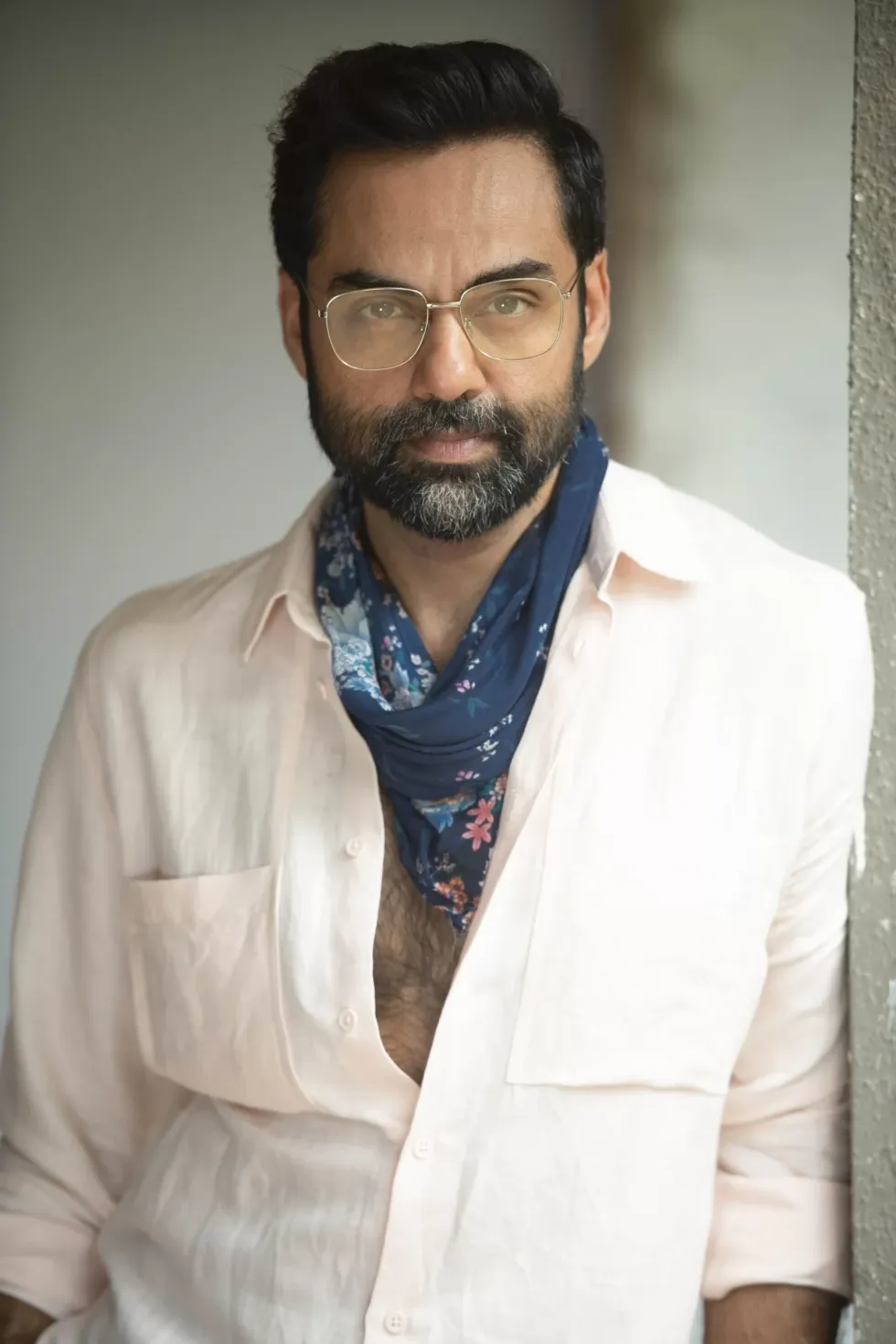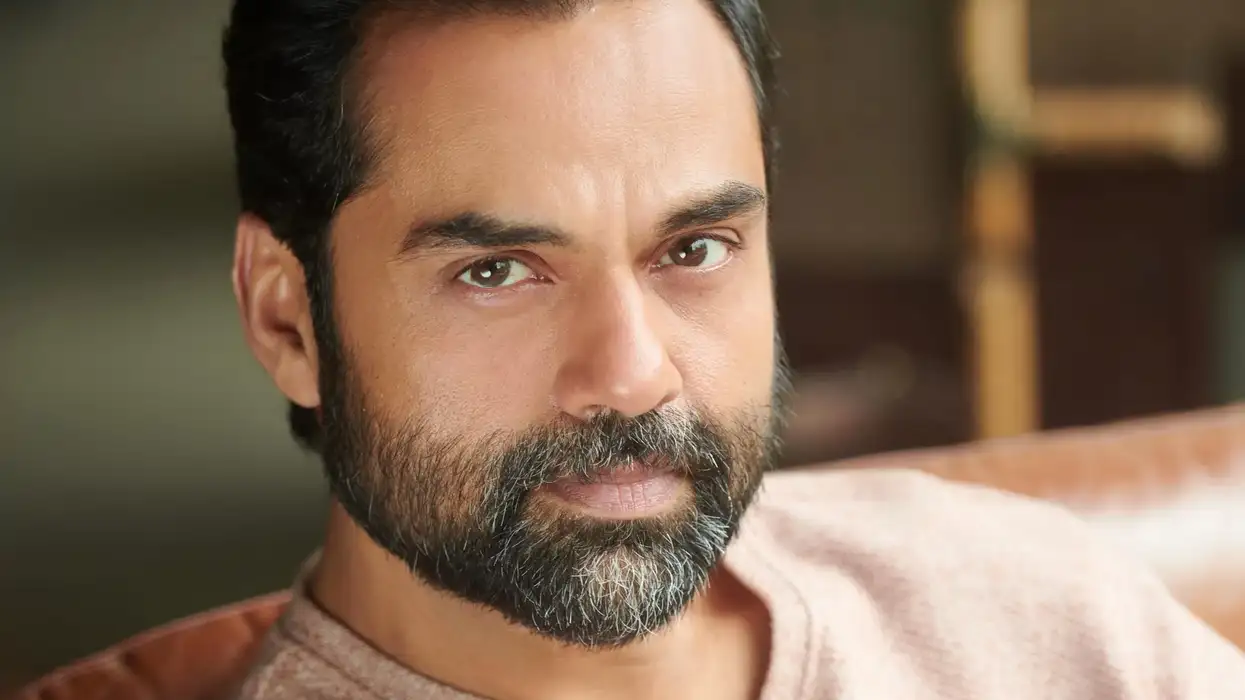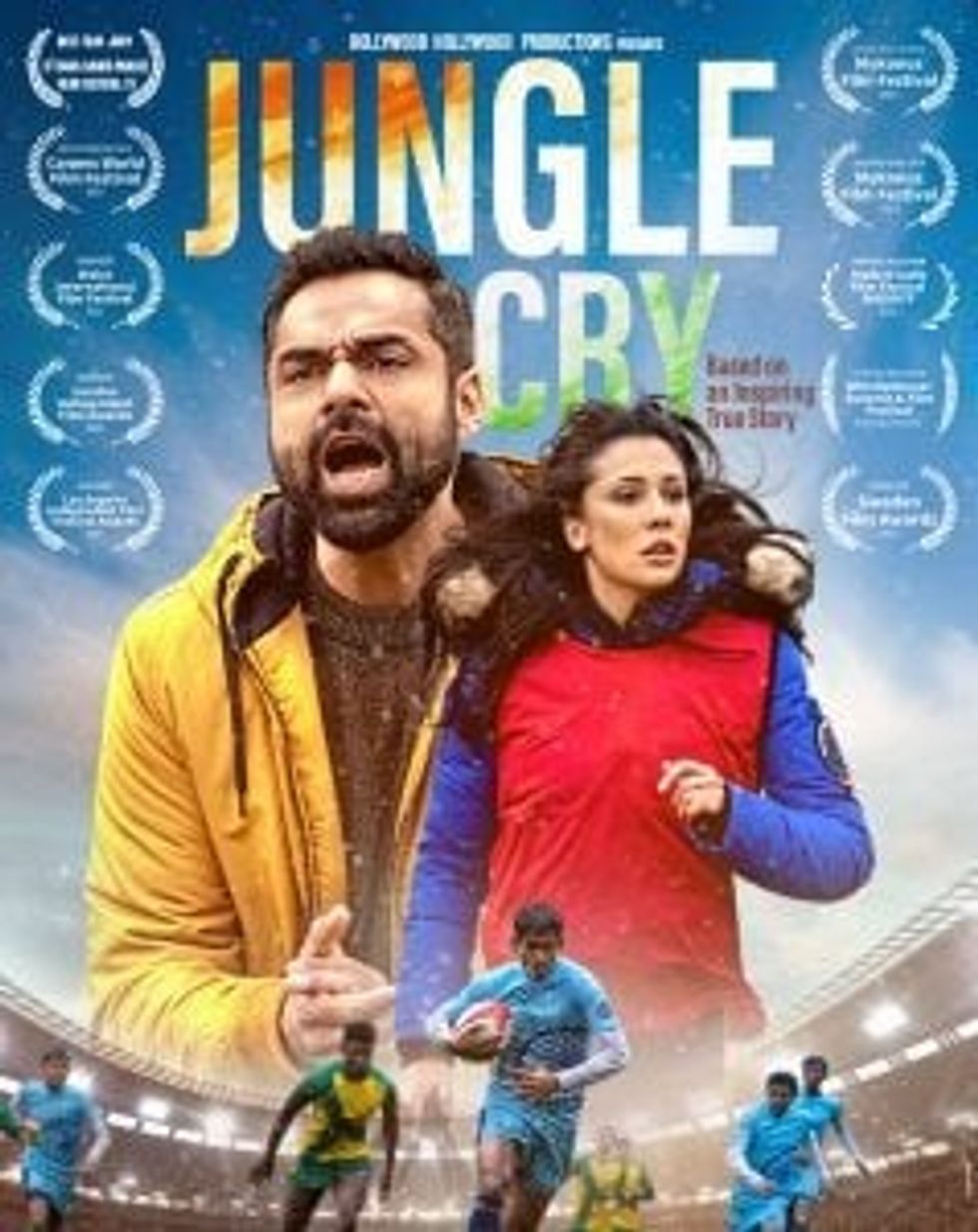A FEW years ago, Abhay Deol admits he may have reflected on his cinema journey with a few regrets, but today that has been replaced with satisfaction of his achievements and rightly so.
The maverick actor pioneered new ideas, uplifted the indie film scene in India and got projects that wouldn’t otherwise be made, produced. His latest unique film project is entertaining sports drama Jungle Cry, which is inspired by the remarkable true-life story of underprivileged children from extreme Indian tribal areas winning the prestigious Under 14 Rugby World Cup in England. He plays the dedicated coach who helped create history with the determined young children fighting against incredible odds.
Eastern Eye caught up with Abhay to discuss the newly released international film, his cinema journey, acting and why he accepts being called a rebel.
You have said you wouldn’t have done anything differently because you learned from mistakes, but do you regret anything from your journey?
I once thought ‘should I have played the star game, marketed myself, had a PR team and all those things’, but I realise now that there’s no reason to have those regrets. I knew upon reflection that I had a real distaste and mistrust of fame, money, and success in the glamour world. I grew up in a famous family and was scarred by the attention given to my family. That wasn’t even me but being related to someone famous. So, I was reluctant about fame, yet I wanted to act and was always passionate about that.
Tell us more about your wariness of fame?
You can’t come from a place of fear, anger and mistrust, a lot of which I had. So today, I’m grateful I had those emotions because they helped me strike a balance. Not playing the star game and doing parallel films have given me the freedom to be who I am. Those films may not speak to everyone, but they speak to me and an audience that understands me, and lets me be who I am. I’m not catering to an image, so am in a really good place. I am thankful for having this life, opportunities, and privileges I’ve had in my 17-year career. I’m looking forward to the next 17 years because I don’t want to stop. I feel like I’ve only just begun in so many ways.
You sound very motivated?
When you reflect upon something with an open heart and mind and a place of gratitude, you get this renewed sense of vigour. It’s almost like you get energy to do more, because when you’re thankful for something then more of it comes. I can’t wait for what else to be thankful for, so it’s been good so far.
One thing that struck me was the fact that this was such an amazing achievement by kids who come from really poor backgrounds, and I didn’t even know about it. I mean nobody knows about it! It reminded me of making indie parallel movies that went against the grain of Bollywood and didn’t get the marketing or screening because they weren’t considered commercial; and wouldn’t get the same attention or space to compete in the real world. These kids were like the indie off-beat movie to the cricketers, who get all the attention because that is the mainstream commercial sport, as opposed to rugby. So, even if you’ve achieved something huge, good luck with getting any attention because people aren’t aware of it
What else did you like about it?
It was also an opportunity to just give back and highlight people who made such sacrifices in life. So, there was a mix of creativity I was attracted to, but also real people I wanted to bring attention to. One of my main selection criteria is being able to relate to the story and role. My character Rudra is somebody who gives up and sacrifices his urban life to live in a small town and work for these kids. I could relate to the passion with which he did that. I haven’t sacrificed my urban existence but am passionate about what I do, as was he and still is.
How does your character Rudra compare to others you’ve done?
It’s hard to answer such questions because I don’t compare my characters. It’s a true-life character, but then I’ve done a couple of true-life stories. I see my characters as individuals. Rudra’s a north Indian Delhi guy in his thirties, who’s different from Krishnan in Shanghai, who was an IAS officer in his late 40s and from south India. He’s a middle-class guy, compared to Kabir from Zindagi Na Milegi Dobara, who is super rich and urban. I can come up with many pointers like this, as every story and character has a different graph and background. So, I don’t think of comparing them.
What is your favourite moment in Jungle Cry?
A scene that comes to mind is one I did with Emily (Shah) at the bar. It kind of summed up my character, who is based on a real person. My director wanted me to also part fictionalise him, so gave him this sort of strange relationship with his dad and wanted me to draw on that history to make him a certain layered person. You don’t see much about his family and then Emily’s character tells him, family can be the people we befriend. That family isn’t just blood, but who you also become friends with and create a community with.
Your character has that with the young kids and that bond is represented beautifully in the film.
Yes, of course, there is a community he has with his kids, but then he finds a kinship with Emily’s character too. I thought that summed up his character and these characters around the kids really well. You know, we don’t always have to look towards blood relatives as family. Somebody outside of that can also be just as close, if not more sometimes. In Rudra’s case, the kids are more his family than
his own real family.
What was the experience of working with the young cast like?
They were really sweet. These kids don’t come from privileged or rich backgrounds and took nothing for granted. There was a sense of gratitude for everything that they get. Of course, they are kids, so there was a little bit of brashness young boys can have, which was endearing. They’re really talented players and so humble for being given the opportunity. A lot of us can take things for granted, but these kids don’t have that luxury. They have ambitions, dreams, and talent, and then you suddenly see they’re also kids. It was nice to see and experience.
What can we expect next from you?
As an actor, I have a limited series called Trial By Fire, which is another true story. It’s extremely tragic and a strong drama that’s in post-production with Netflix India. I have another true story as an executive producer and another production I will be acting in, and also producing, which I’ll announce soon.

What has inspired you as an actor?
I knew I wanted to act at a really young age. I remember being on stage at the age of five, without having a real understanding of my family being filmmakers. I was fascinated about performing on stage before realising that, so inspiration from other people came later. It was just an inherent attraction for me, so it’s hard to say what inspired me, when it just felt like the natural thing to do. It’s like what inspires you to be natural – nothing; you’re natural because you just are.
Do you have a dream role?
It’s hard to have a dream role because things tend to surprise you more when you don’t project anything out there. Of course, Devdas was something I wanted to play and why I came up with a contemporary version and got Dev D developed. I guess you could have called it a dream role. It’s such an iconic character for Hindi cinema. If you have done that in Bollywood, you’ve kind of done the biggest dream role there is. I don’t put any dream role and just expand as an artist.
Tell us something about the process?
Acting is dealing with the human psyche and emotions, so it’s already a space that’s potentially expansive. And what a privilege to make a living out of it! So, there’s no dream role. It’s just a desire to keep exploring different people and circumstances. It’s all about generating empathy for people from different backgrounds, even for someone who’s, let’s say, negative. So, roles that will make the audience question themselves, their families, culture, and conditioning, just so they can rise above the identity that has been trusted on them. Those are the kind of stories I look for. That doesn’t fit into dream roles. I don’t know what that fits into.
Do you have any other ambitions away from cinema?
Probably in the wellness industry. To do wellness retreats and events, art exhibitions and create sacred spaces for human wellbeing. I am working towards that.
Is it fair to say you are rebellious?
(Laughs) I find that if you are discovering yourselves and not letting external conditions dictate how you should be, who you should be, where you should go, what you should say, what you should wear, because that’s something you want to discover for yourself, by default you become a rebel. Because you’re not listening to what is acceptable. You’re only following your own instincts, which may or may not be agreeable to your environment, but you do it anyway. So, I’m not trying to rebel, but I become a rebel by my actions. I don’t romanticise such things.
Why is that?
I don’t romanticise being rebel or an indie filmmaker because it’s hard being in those situations. And I wouldn’t thrust that upon anyone. Whenever I found myself rebelling against anything or pushing for projects that would not easily get made or developed, it was really hard. I’ll accept people can see me that way, but it’s not who I see myself as. I’m just trying to be me.
Why should we watch Jungle Cry?
(Laughs) You shouldn’t, go watch a comedy, Spiderman or something. I’m never good at answering why should we watch it. Every filmmaker will tell that we put a lot of hard work into what we do. We make it with passion and honesty. When people watch our work, it makes it all worthwhile because we do it so a larger audience gets to see it. In this particular project, I would say watch it for the kids and for recognising that these people are real. That there is this institute Jungle Cry is based upon, which houses, educates, and gives a future to so many innocent lives, who would not have had this opportunity otherwise. So more than just liking the film watch it for information and education.
Jungle Cry is in cinemas now





